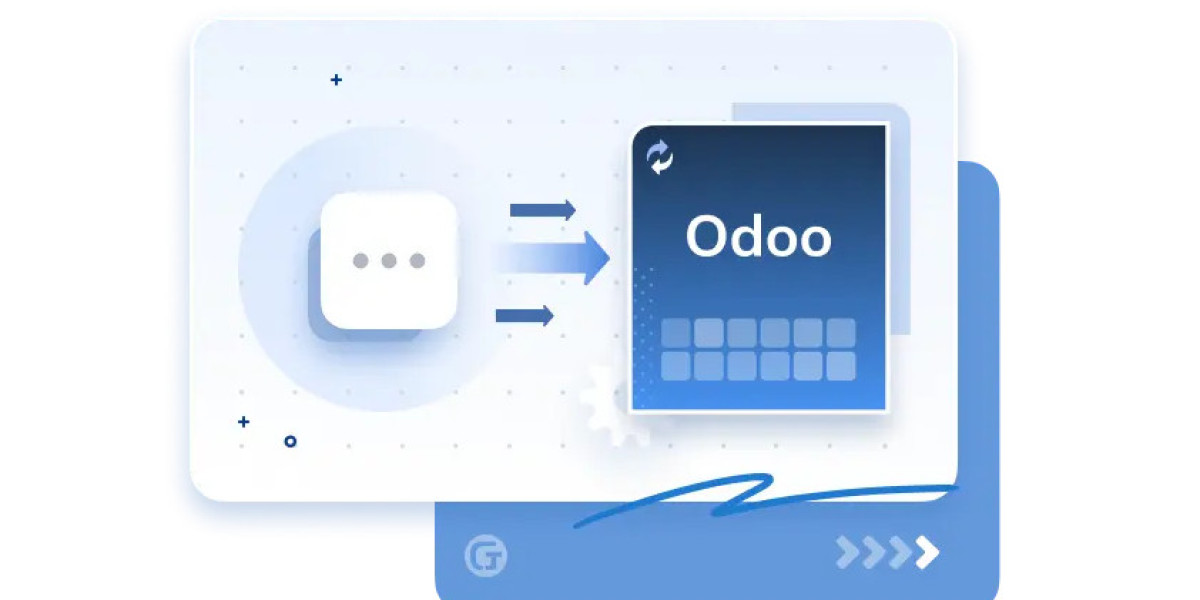Migrating to a newer version of Odoo can be a game-changer for your business. From new features to enhanced performance and improved security, every Odoo version brings valuable upgrades. However, the odoo migration process can also be technically demanding, time-consuming, and risky if not handled properly. That’s why choosing the right odoo migration service partner is critical to the success of your project.
Why You Need a Reliable Odoo Migration Service Partner
Before diving into how to choose the right partner, it’s important to understand why it matters. An experienced and reliable odoo migration partner can:
Minimize downtime during migration
Avoid data loss and ensure integrity
Preserve custom modules and integrations
Test and validate your migrated system thoroughly
Train your team on any changes post-migration
A poorly executed migration odoo project, on the other hand, can result in operational disruption, broken workflows, or even complete system failure.
1. Assess Their Technical Expertise and Certifications
Start by evaluating the technical capabilities of the odoo migration services provider. Look for:
Official Odoo Partner status: Odoo classifies its partners as Ready, Silver, or Gold based on experience and client satisfaction. A certified partner is often more reliable.
Proven track record: Ask for case studies or client references, especially for migrations between specific Odoo versions like Odoo 11 to 16 or Odoo 13 to 17.
Strong knowledge of Odoo’s architecture: The team should understand core modules, ORM, API, database schema, and how customizations work in different versions.
Pro tip: Don’t hesitate to ask about their developers’ certifications, years of experience, and whether they’ve worked on projects similar to yours.
2. Evaluate Their Migration Methodology
A structured migration process is a hallmark of a dependable odoo migration service provider. Their methodology should include:
a. Initial Audit and Planning
Assessment of your current system (custom modules, third-party apps, data volume)
Understanding business workflows and identifying potential risks
Setting realistic timelines and deliverables
b. Database Migration
Migrating master and transactional data without loss or duplication
Preserving relationships between records (e.g., invoices, sales orders, customers)
c. Custom Module Migration
Refactoring custom code to be compatible with the new Odoo version
Rewriting deprecated APIs and functionalities
Retesting logic and functionality
d. Testing and QA
Functional testing of modules and workflows
Load testing and performance evaluation
User acceptance testing (UAT)
e. Training and Post-Go-Live Support
End-user training
Bug fixes and optimization
Ongoing support options
Ask your prospective partner to explain their process step-by-step. A transparent, structured plan is a good sign of their professionalism.
3. Review Their Communication and Project Management Approach
Effective communication is key to the success of any migration odoo project. Here’s what to look for:
Dedicated project manager: Will there be one point of contact managing your migration?
Regular updates: Will you receive weekly reports or status calls?
Clear documentation: Do they provide detailed records of changes, configurations, and test results?
Good communication practices reduce misunderstandings, speed up issue resolution, and help keep the project on track.
4. Assess Post-Migration Support and Maintenance
A professional odoo migration service doesn't stop at going live. The real test often begins after migration, when real users begin interacting with the new system.
Ask the vendor about:
Support SLAs (response time, resolution time)
Post-migration bug fixing
Ongoing maintenance and feature enhancements
User training options
Choose a partner who can stay with you long after the migration is done.
5. Understand Their Pricing Model
Odoo migration can be priced in different ways—hourly, per milestone, or as a fixed-price project. Make sure you understand:
What’s included and excluded
Whether post-migration support is included
Costs for future customizations or add-ons
Avoid surprises by asking for a detailed breakdown and ensuring transparency.
6. Check Their Industry Experience
Every industry has unique workflows and requirements. Whether you’re in manufacturing, healthcare, eCommerce, or services, it helps to work with a vendor who understands your domain.
Look for a partner with:
Experience in your industry
Ready-to-use modules or templates tailored for your sector
Ability to customize Odoo to align with your specific needs
Industry familiarity can drastically shorten development time and reduce errors.
7. Gauge Their Problem-Solving Capabilities
Not all odoo migration projects go smoothly. Legacy systems, incompatible third-party apps, or unclean data can all create bottlenecks.
During initial discussions, evaluate how the team handles challenges:
Do they propose practical workarounds or band-aid solutions?
Can they share past challenges and how they overcame them?
Are they proactive in risk mitigation?
A strong partner will have backup plans and demonstrate agility in solving problems.
8. Request a Proof of Concept or Trial Migration
Before committing to a full project, ask for a small trial or proof of concept (PoC). This can involve migrating a limited dataset or module to showcase:
Their understanding of your needs
Technical capabilities
Ability to communicate and deliver
A successful PoC can give you confidence and reduce the perceived risk of the full odoo migration service.
9. Look for Reviews and Testimonials
Client reviews offer firsthand insight into what working with the vendor is actually like. Look beyond testimonials on their website—explore:
Clutch, GoodFirms, or G2 reviews
Google Business ratings
Odoo community forums
Pay attention to what clients say about timelines, quality of work, communication, and long-term reliability.
10. Make Sure They Offer Security and Compliance
Odoo migrations often involve sensitive data—financials, HR records, customer info, etc. Ensure the partner adheres to:
GDPR, HIPAA, or other relevant data privacy regulations
Secure migration practices (encryption, access control)
Data integrity validation checks
A compliant and security-conscious vendor minimizes risks during and after migration.
Final Thoughts
Migrating your Odoo system is a strategic move that can bring great benefits—improved speed, richer features, and higher productivity. But the stakes are high, and mistakes can be costly.
That’s why choosing the right odoo migration partner is essential. From technical expertise and industry knowledge to clear communication and reliable post-migration support, every factor plays a role in ensuring a smooth and successful transition.
By carefully evaluating your options using the criteria outlined above, you can confidently select a migration odoo partner who aligns with your business goals and delivers long-term value.






